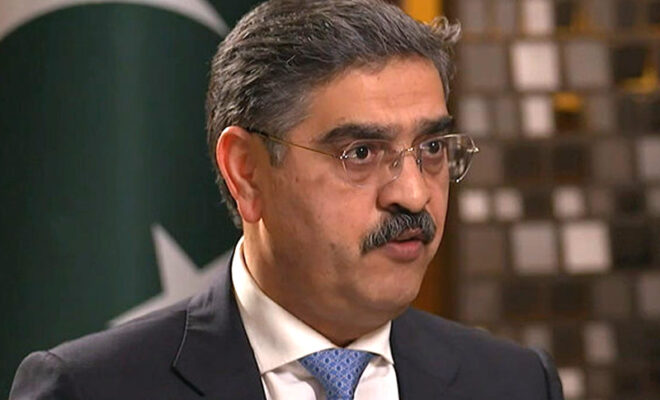Rich Leaders, Poor Nation: Pakistan Begs Again For Funds To IMF

The Election Commission of Pakistan’s report uncovers the wealth of Pakistan’s ministers and caretaker Prime Minister Anwaarul Haq Kakar. It shows a contrast where the country’s leaders hold significant personal wealth, while Pakistan itself faces severe financial challenges and depends on external funding.
Wealth of Pakistan’s PM & Ministers
The caretaker Prime Minister of Pakistan, Anwaarul Haq Kakar reportedly has Rs 47.72 million in cash, either in hand or deposited in banks.
Sarfraz Ahmed Bugti, a key Cabinet minister of Pakistan, has a substantial wealth, largely inherited. He owns 90 camels, 8,870 sheep, 4,060 goats, 400 cows, 80 bulls, and 86 buffaloes, valued at around Rs 7 billion. Additionally, he has properties worth Rs 76 million, cash of Rs 7.42 million, and household items valued at Rs 6.80 million.
The caretaker Finance Minister, Dr Shamshad Akhtar, doesn’t own a car but has inherited gold worth Rs 200,000, gifted assets of Rs 2.19 million, and investments in T-bills and stocks worth Rs 134 million. Her property is valued at Rs 4.57 million, and she has cash holdings of Rs 5.86 million.
Current Financial Situation of Pakistan
Pakistan is facing a severe financial crisis and has recently secured a $3 billion bailout package from the International Monetary Fund (IMF). The country’s economy is fragile, and it requires continuous support from the IMF.
Pakistan is also looking for additional funding sources and loans from other global institutions and nations. The IMF’s support can only save Pakistan’s economic stability and recovery.
Also Read: Biden Calls Xi Jinping ‘Dictator’ Despite Pledges For Better Ties
Why Pakistan Is Begging For Money From IMF?
The situation where Pakistan’s Prime Minister and other ministers have significant personal wealth while the country seeks international aid raises questions about the financial management and governance of the country.
The contrast may suggest issues with wealth distribution and the use of resources. While it might seem logical for wealthy leaders to contribute personally to national crises, such scenarios are complex and involve broader economic and policy considerations beyond individual wealth.
The underlying issues may include systemic financial challenges, governance problems, or even corruption, and scams.



